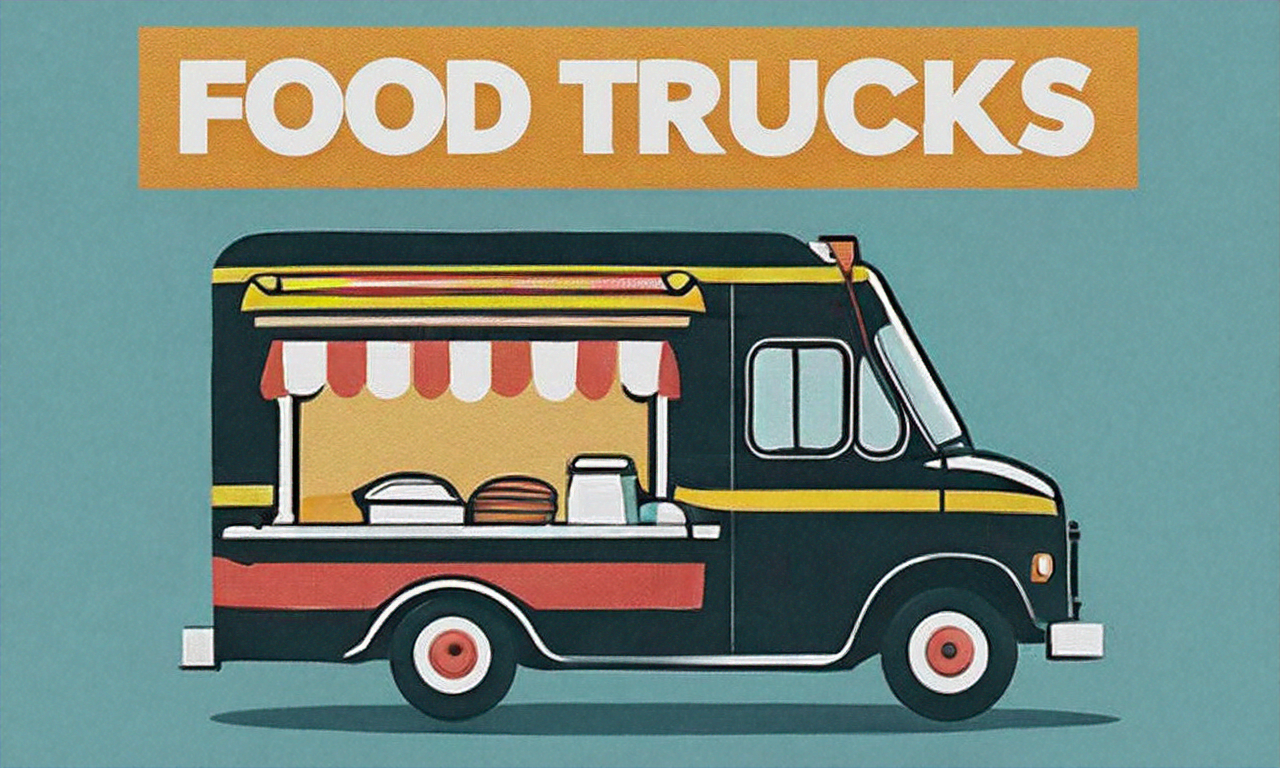Rent-to-Own Food Trucks: Your Guide to Flexible Ownership
The food truck industry has revolutionized the culinary landscape, offering aspiring entrepreneurs a gateway to restaurant ownership without the hefty upfront costs of a brick-and-mortar establishment. Rent-to-own food trucks have emerged as an innovative solution, allowing individuals to pursue their culinary dreams while breaking financial barriers. This guide explores the world of rent-to-own food trucks, shedding light on how this model is redefining economic flexibility in the food service industry.

What are rent-to-own food trucks?
Rent-to-own food trucks are mobile kitchens that aspiring food business owners can lease with the option to purchase over time. This arrangement allows entrepreneurs to start their food truck business without a significant initial investment. Typically, the renter makes regular payments, and a portion of each payment goes towards the eventual purchase of the truck. This model bridges the gap between renting and owning, providing a path to ownership for those who might not qualify for traditional financing options.
How does the rent-to-own process work for food trucks?
The rent-to-own process for food trucks usually begins with an agreement between the truck provider and the renter. The contract outlines the terms, including the rental period, monthly payments, and the final purchase price. Throughout the rental period, the renter operates the food truck as if it were their own, generating income while making payments. If all terms are met, the renter can exercise their option to buy the truck at the end of the lease, often at a predetermined price that takes into account the payments made during the rental period.
What are the benefits of renting to own a food truck?
Renting to own a food truck offers several advantages, particularly in terms of breaking financial barriers and redefining economic flexibility. First, it requires a lower initial investment compared to purchasing outright, making it easier for entrepreneurs to enter the market. Second, it allows for a “try before you buy” approach, enabling operators to test their business concept without long-term commitment. Additionally, maintenance and repairs are often covered by the leasing company during the rental period, reducing unexpected expenses for the renter.
Are there any drawbacks to the rent-to-own model for food trucks?
While rent-to-own food trucks offer many benefits, there are potential drawbacks to consider. Monthly payments may be higher than traditional rental rates, as a portion goes towards the eventual purchase. There may also be restrictions on customization or modifications to the truck during the rental period. Additionally, if the renter decides not to purchase the truck at the end of the lease, they may have invested a significant amount without gaining ownership. It’s crucial for entrepreneurs to carefully review the terms and calculate the total cost over time before committing to a rent-to-own agreement.
How does rent-to-own support culinary concept diversity?
Rent-to-own food trucks play a significant role in fostering culinary concept diversity. By lowering the entry barrier, this model enables a wider range of entrepreneurs to bring their unique culinary visions to life. Chefs and food enthusiasts from diverse backgrounds can experiment with fusion cuisines, regional specialties, or innovative food concepts without the financial constraints of traditional restaurant ownership. This flexibility contributes to a more vibrant and diverse food scene, offering consumers a broader array of dining options and culinary experiences.
What should you consider when choosing a rent-to-own food truck provider?
When selecting a rent-to-own food truck provider, several factors should be taken into account to ensure a successful partnership. Consider the provider’s reputation, the quality and condition of their trucks, and the flexibility of their lease terms. It’s also important to understand the maintenance and support services offered during the rental period.
Here’s a comparison of some rent-to-own food truck providers:
| Provider Name | Services Offered | Key Features/Benefits |
|---|---|---|
| Food Truck Nation | Customizable trucks, Flexible lease terms | In-house maintenance, Business coaching |
| Rolling Kitchens | Standard and premium truck options | 24/7 support, Option to upgrade during lease |
| Culinary Wheels | New and refurbished trucks, Short and long-term leases | Nationwide delivery, Culinary equipment included |
| Mobile Bistro Solutions | Custom-built trucks, Franchise opportunities | Marketing support, Location assistance |
When considering rent-to-own options, it’s essential to thoroughly research and compare providers. Each offers unique features and benefits that may align differently with your business goals and financial situation. Remember to review the terms carefully and consider seeking legal advice before signing any agreements.
In conclusion, rent-to-own food trucks represent a flexible pathway to ownership in the mobile food industry. By offering personalized ownership pathways and alternative exploration strategies, this model is breaking down traditional barriers to entry and fostering a more diverse culinary landscape. Whether you’re a seasoned chef looking to branch out or a food entrepreneur taking your first steps, rent-to-own food trucks provide an accessible and adaptable solution for turning your culinary dreams into reality.




